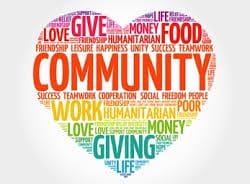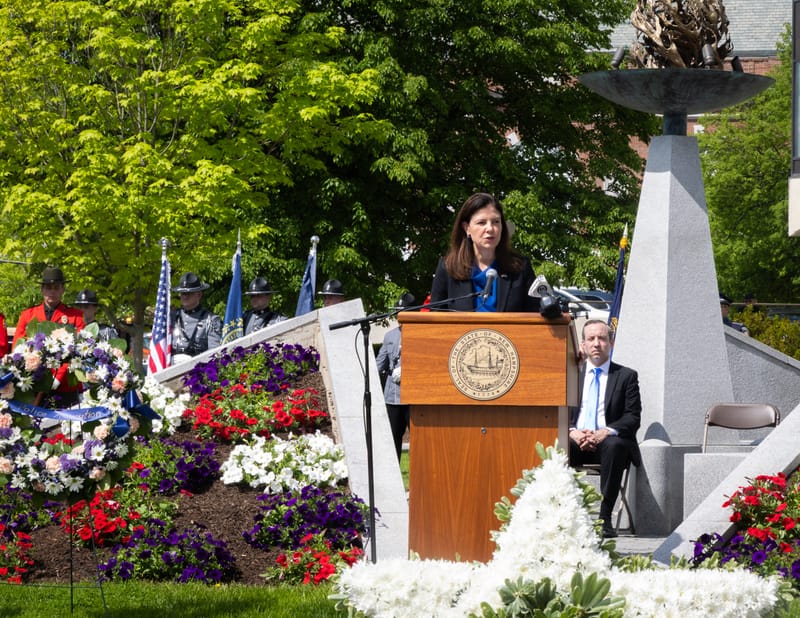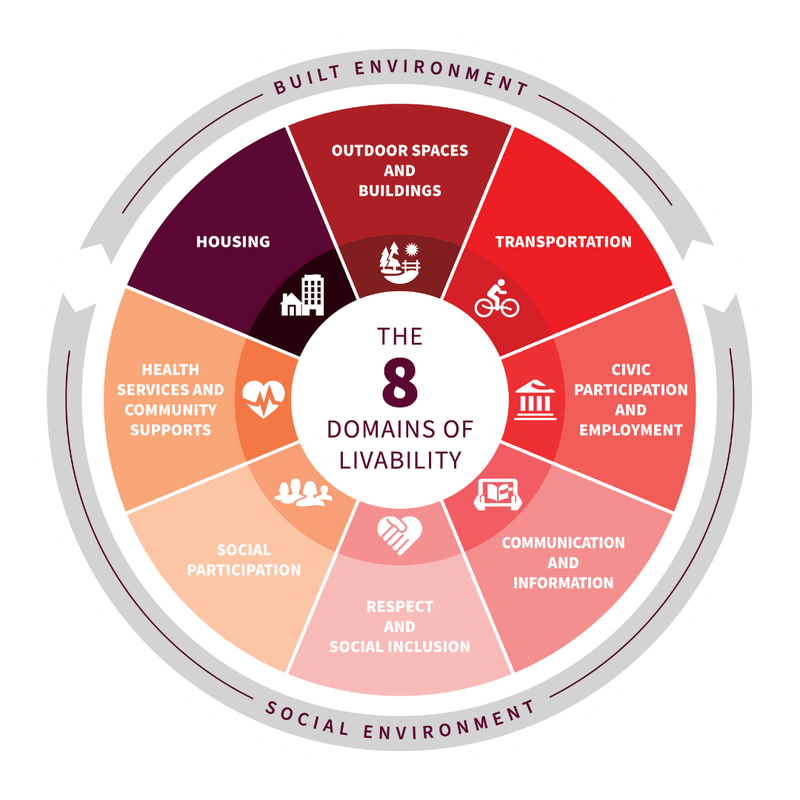Serving does the body good
But why serve? What benefits are there to serving? I have listed some reasons why serving is not only good for the community, but for the individual as well.

O P I N I O N
Forward Focus
by Brian Chicoine


I often write about getting involved in our community. And many times my examples are getting involved in the political process. Although getting involved civically with our political process is incredibly important, and quite easy here in New Hampshire, there are many ways to become involved both inside and outside of politics.
Some people do not like politics, and although I believe that getting involved in your community includes even the simplest participation in local civic matters, (such as a resident speaking at an Aldermanic meeting here in Manchester or writing an opinion piece to be posted in the Soap Box at Manchester Ink Link), there are many ways to become involved in one’s community for people who do want to deal with politics.
But why serve? What benefits are there to serving? I have listed some reasons why serving is not only good for the community, but for the individual as well.
But before I get into the reasons why we should serve, I want to let everyone know about an opportunity to learn a bit about New Hampshire State Government and meet your State Representatives and State Senators. (The people who actually deal with the bills and laws of our great state). In New Hampshire, we have the unique opportunity to meet and speak with those who represent us, so we should take advantage of that fact.
This Wednesday (December 4th) at 10 a.m., the New Hampshire General Court, (state legislature name), will have ‘Organization Day’, when, among other things, the State Reps and State Senators will be sworn in. General Court sessions are free and open to the public, and generally are held on a weekly basis from January through June.
The Importance of Serving Our Community: Building a Stronger, More Connected Society
Serving our community is an essential part of living a fulfilling and purposeful life. It goes beyond helping those in need; it involves fostering a sense of unity, responsibility, and connection that creates a positive ripple effect throughout society. While the benefits to the individual, community, and society at large are many, the act of service is often overlooked or underappreciated. The following are benefits of serving:

1. Personal Growth and Fulfillment
One of the most immediate and profound reasons to serve our community is the personal growth and sense of fulfillment that comes with it. When we give our time, energy, or resources to others, we often discover a deeper sense of purpose in our lives. Acts of service can lead to increased self-esteem and satisfaction, as helping others offers a sense of accomplishment and meaning.
Serving others can also develop important personal qualities, such as empathy, patience, and humility. As we interact with people from different walks of life, we gain a broader perspective on the challenges others face, fostering a sense of empathy and compassion. This is particularly true when we serve individuals in our community who may be experiencing difficult circumstances—whether it’s homelessness, financial hardship, or illness. These interactions help us realize that everyone has struggles, and by extending kindness and support, we can make a meaningful difference.
Additionally, engaging in service can also improve our mental health. Studies have shown that giving to others can activate the brain’s reward system, releasing endorphins and improving overall well-being. Helping others creates a sense of purpose and meaning, which can combat feelings of isolation, anxiety, or depression.
2. Strengthening Social Connections and Building Trust
Communities thrive when individuals work together toward common goals. Service strengthens the social fabric of a community by fostering relationships built on trust, mutual respect, and cooperation. When we actively serve others, we build a network of social ties that binds us together and helps us create a sense of belonging. This is especially important in today’s world, where people can often feel disconnected or isolated due to technological advances, busy lifestyles, or societal pressures.
By engaging in volunteer work or community service, we meet people from diverse backgrounds, forming friendships and networks that contribute to a stronger sense of unity. For example, volunteering at a local food bank might allow someone to connect with others who are passionate about food security. Similarly, coaching a youth sports team or helping at a community center can create bonds that transcend differences and foster a shared purpose.
Moreover, when we invest time in our communities, it helps to build trust, a cornerstone of any functioning society. Trust among individuals and between community members and institutions makes it easier to cooperate and work together toward collective goals. Without trust, it is difficult for communities to address social challenges or enact positive change. Volunteering and serving others demonstrates commitment and concern for the well-being of others, which helps to strengthen social bonds and contribute to a more cohesive society.

3. Promoting Social Responsibility and Civic Engagement
Serving our community is not just about benefiting the individual; it is also about recognizing our responsibility to the larger society. Every person has a role to play in shaping the future, and by giving our time and effort to community service, we are actively participating in the betterment of society. Civic engagement, which includes volunteering, voting, and contributing to public discourse, helps ensure that communities remain vibrant, democratic, and just.
By serving, we also set an example for others—especially the next generation. Children who witness adults engaging in service activities are more likely to adopt similar attitudes toward helping others. In fact, studies have shown that children raised in environments where volunteering and community service are prioritized are more likely to become involved in their own communities later in life.
Furthermore, when individuals take part in service-oriented activities, they often become more engaged in civic life, advocating for policies that address community issues such as education, healthcare, or environmental sustainability. Volunteering fosters a sense of ownership and responsibility, which can encourage greater participation in local decision-making processes and the democratic system.
4. Improving the Quality of Life for All
Community service has the power to directly improve the quality of life for people within that community. Whether we are participating in a local cleanup, mentoring a student, or raising funds for a charitable cause, our actions help create a more pleasant and supportive environment for everyone. Community service often focuses on addressing the immediate needs of vulnerable populations, such as the homeless, children in foster care, or those affected by illness.
Local projects, like food banks, shelters, or education initiatives, are vital to the well-being of community members who may be underserved or marginalized. When we volunteer our time and resources to these causes, we contribute to reducing inequalities and providing those in need with access to resources that can change their lives. This, in turn, creates a more equitable society, where all individuals have a fair shot at a better future.
Additionally, community service can address environmental concerns. By participating in initiatives such as tree planting, park cleanups, or local recycling efforts, we help to preserve and improve the local environment. Environmental degradation affects everyone, and community service provides a way for individuals to come together and make positive changes in their surroundings.

5. Fostering a Culture of Kindness and Empathy
Serving others promotes a culture of kindness, compassion, and empathy, which is essential for maintaining a harmonious society. When we take the time to help others, we show that we care about their well-being and recognize the inherent dignity in every person. This creates a positive atmosphere in which kindness is not only appreciated but also expected.
In a world that can often feel divided, the act of service brings people together across social, cultural, and economic lines. When we volunteer alongside others, we are reminded that our differences are not barriers to cooperation but opportunities for growth. We learn from one another, exchange ideas, and collaborate in ways that enrich our lives and the lives of those around us.
In this way, serving our community helps to counteract the isolation and fragmentation that can occur in modern societies. It fosters inclusivity and ensures that no one is left behind. It encourages a spirit of volunteerism and solidarity, which ultimately strengthens the social fabric and ensures that everyone can benefit from the collective resources and support of the community.
6. Leaving a Lasting Legacy for Future Generations
Serving our community is a powerful way to leave a lasting impact for future generations. The contributions we make today can create a ripple effect that will continue to benefit others for years to come. By working to improve the community’s infrastructure, education system, or social services, we are building a foundation for the success of those who will follow us.
Moreover, engaging in service sets an example for younger generations, demonstrating the importance of giving back and contributing to the collective good. When children and young adults see their parents or mentors engaging in volunteer work, they are more likely to follow in their footsteps, perpetuating the cycle of community service and strengthening the bonds of society.
Leaving a legacy through service also means improving the physical, social, and cultural environment of a community. This can be done through establishing scholarships, creating sustainable community programs, or ensuring that future generations have access to the same resources and opportunities we enjoy today.
Conclusion
Serving our community is an essential responsibility that benefits not only those in need but also the individual and society as a whole. The act of service enhances personal growth, strengthens social connections, promotes civic engagement, improves quality of life, and fosters a culture of kindness and empathy. By investing our time and efforts into community service, we can leave a positive impact on future generations and build a more unified, resilient society.
Ultimately, serving our community is not just about giving; it’s about creating a more compassionate, connected, and thriving world for everyone. Whether through small acts of kindness or large-scale projects, the collective impact of community service is immeasurable.
As we continue to engage in service, we make the world a better place for ourselves and those who come after us.
As always, you can email comments to me at bchicoinemht@gmail.com.
[mailpoet_form id=”3″]





